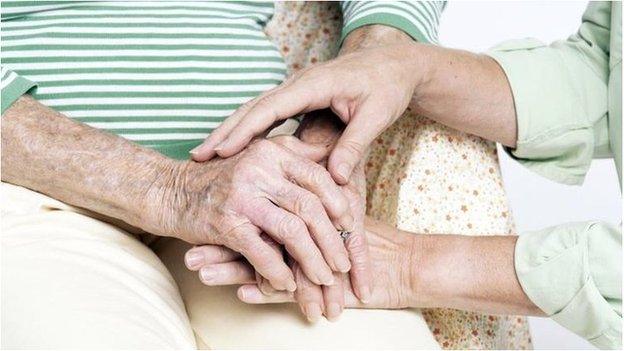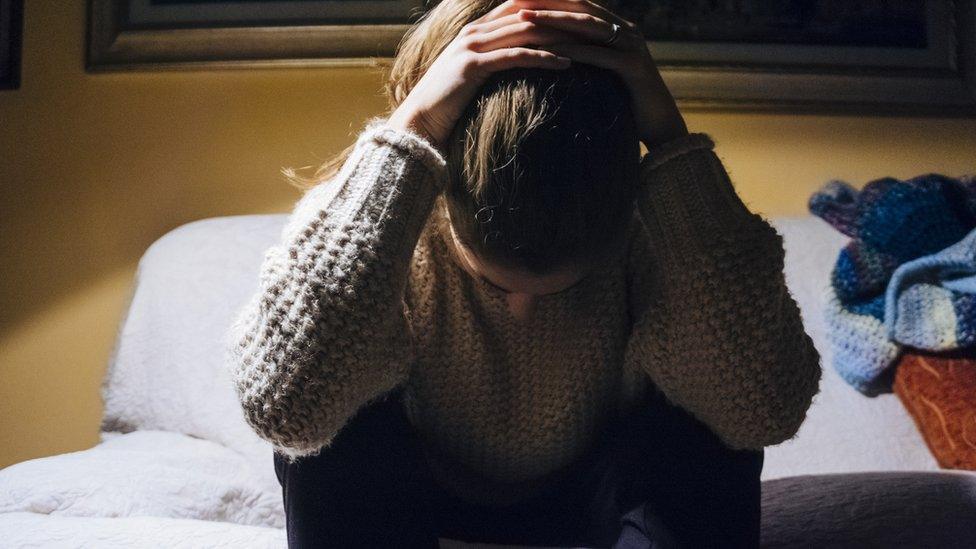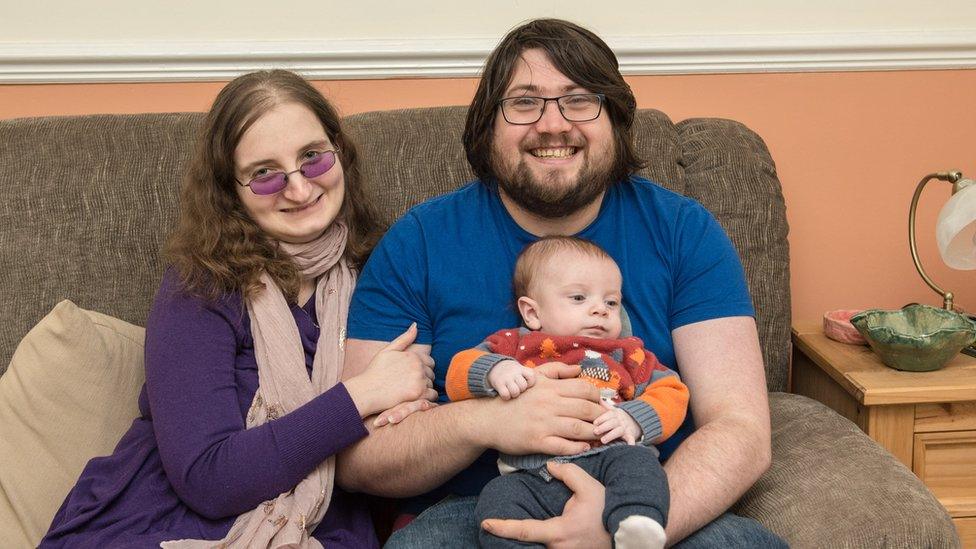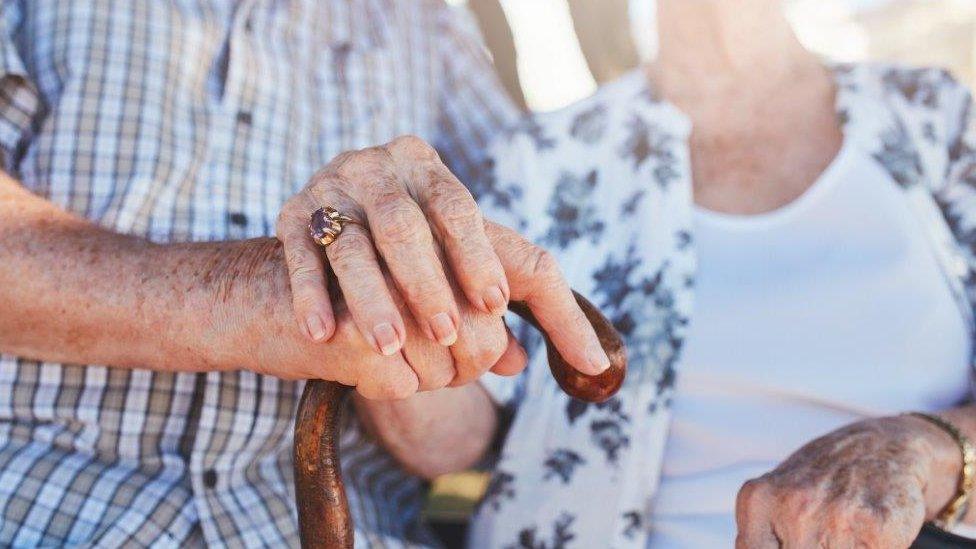Most NI carers have suffered mental ill-health - survey
- Published

More than two-thirds of carers in Northern Ireland questioned for a survey said they have suffered mental ill-health as a result of their caring responsibilities.
And more than a half said their physical health had deteriorated.
The survey was carried out across the UK to mark Carers Week, which starts today.
It is estimated that about 220,000 people in NI care for a loved one, saving the state £4.6bn per year.
'Strain of caring'
A carer is defined as someone who provides unpaid care and support to a family member or friend who has a disability, illness, mental health problem or who needs extra help as they grow older.

Some carers in Northern Ireland have suffered mental ill-health as a result of their responsibilities
Providing hands-on care, worrying about their loved ones' diet, and lack of sleep were the main factors contributing to carers' stress and anxiety.
Clare-Anne Magee, general manager of Carers Northern Ireland, said carers' work must not be taken for granted.
"Without the unpaid care provided every year by family and friends, our health and social care system would collapse," Ms Magee said.
"The physical and mental strain of caring, without enough support, is jeopardising carers' ability to care both now and in the future."
The survey by a number of carers' charities, including Carers UK, Age UK and Carers Trust, is based on 6,828 responses from people currently providing care, including 547 in Northern Ireland.
The charities warned that unless more support is provided, the ability of many carers to look after loved ones will be put at risk.

Case study:
'A running worry'
One carer from County Antrim, who did not wish to be named, said he and his wife worry about who will look after their adult daughter once they're gone.
"The whole thing is a bit of a worry. If myself or my wife are out in the car, I think what would happen to her [his daughter] if something happened to us?" he told BBC News NI.
"That's a great worry. I've told the Northern Trust, on occasions, I really don't know where my daughter would go tomorrow, or where would be suitable for her. That's a running worry."
His daughter, who is in her 40s, uses a wheelchair.
"When I was in my 50s I thought wouldn't it be good to get my daughter in somewhere [to live], because we won't be able to look after her forever," he said.
"Get her in somewhere, get her sorted, make sure she's happy. Twenty years later and we're still none-the-wiser. There's nothing in place. There's a total lack from a government point of view. And we're not the only one."
He said the facilities available are "gravely lacking".
"It's because the carers and their dependents are very isolated. It's very different to when a child goes to school and parents meet at the gate everyday, but when people are bused to centres, you have not a clue where the other people live, and you don't communicate. It is extremely isolating."

Key findings of the survey include:
70% of carers said they had suffered mental ill health as a result of their caring responsibilities.
57% said they expect their physical health and 61% believe their mental health well-being will get worse in the next two years.
40% of carers in Northern Ireland said that they expect to be be able to provide less care or no care in the future because of poor physical health.
33% said that poor mental health would mean they will be able to provide less or no care in the future.

A carer is defined as someone who provides unpaid care and support to a family member or friend who has a disability, illness, mental health problem or who needs extra help
"In the absence of an assembly, more needs to be, and must be done, by policy-makers, health and social care providers, employers and the wider community in Northern Ireland to ensure carers here are recognised and supported, not just with their caring role but in all aspects of their daily lives," Ms Magee added.
A report from 2015 by Carers UK and the University of Sheffield found that the value of carers' support in Northern Ireland had almost doubled to £4.6bn since 2001., external
It said researchers had attributed this to a large increase in the number of hours people are caring for, combined with an increase in the cost of replacement care.
- Published24 November 2017

- Published11 July 2017
